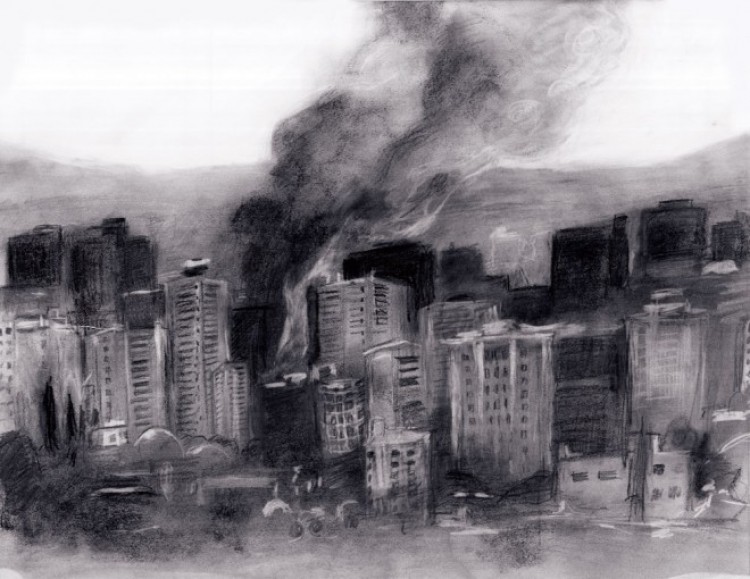In the last two years, seventeen states have passed restrictive voting laws that could impact the 2012 election. All but two of these states have Republican Governors or Republican-run state houses. Conservatives say they are installing safeguards against voter fraud, but liberal activists and politicians are crying foul, claiming the new laws are designed to deny the vote to blacks, Hispanics, low-income citizens and others – also known as Barack Obama’s base.
With the election nearly a month away, battles rage inside state and federal courts. The outcome of these cases could decide the election and the future of the United States.
The Myth of “Voter Fraud”
Conservative supporters of voter registration laws contend that their purged voter rolls, strict ID requirements and other controversial measures, are meant to prevent illegal aliens and fraudulent voters from spoiling fair election results. “Evidence of voter fraud is present in all 50 states,” wrote Kansas Secretary of State Kris Kobach in the Wall Street Journal. “Public confidence in the integrity of elections is at an all-time low.”
Many state governments working to prosecute fraudulent voters are coming up empty. Colorado sought to purge illegal aliens from the voter rolls by enacting an expensive campaign, mailing letters to roughly 4,000 registered voters and demanding proof of citizenship. The search proved fruitless after identifying only 141 “illegal” registrations, .004 percent of Colorado’s 3.5 million voters.
Other states, including key swing-states like Florida, have implemented similar measures and had the same dismal results. It’s appears that the majority of voter registration issues are the product of bureaucratic or systematic errors.
The same lack of results plague the fight against voter fraud on the federal level. Between 2002 and 2007, the Justice Department, under orders from the Bush Administration, conducted a major probe that resulted in only 86 convictions out of the 300 million votes cast during that timeframe.
A Fading Majority
If voter fraud isn’t the real target, then what is the purpose of restrictive voter laws? The answer may be found in simple demographics. In 2008, President Obama swept into office largely supported by increased voter turnout from the nation’s black and Hispanic populations.
These voters represent a broad, nationwide demographic shift over the past decade. The change is perhaps most threatening to Republicans in the South, where the Southern GOP is 88 percent white. In an article for The Nation, Ari Berman uses North Carolina as an example: “Since 2008, the black and Hispanic share of eligible voters has grown by 2.5 percent, while the percentage of the white vote has decreased by a similar margin.” The same pattern can be seen across the South, states where some of the most restrictive voter laws have been enacted.
Let me see your ID
Eight states have passed restrictive photo ID laws. Conservative supporters suggest the laws are harmless. Yet voter advocacy groups claim that 21 million American citizens do not possess a government-issued photo ID, a disproportionate number of whom are young, low-income and minority citizens.
Pennsylvania is one state embroiled in a court battle over photo ID laws. Governor Tom Corbett (R) hoped to create “a simple and clear standard to protect the integrity of our elections.”
Instead, the law threatens to disenfranchise 750,000 voters, according to the Pennsylvania Department of Transportation. In Philadelphia County alone, a Democratic and urban center, nearly 18 percent of citizens could lose the ability to vote. That is more voters than the margin of victory in the state during the 2008 election.
The timing of laws like this cause the greatest concern. Pennsylvanian citizens may have to visit two separate government offices and present several documents to prove their citizenship. The burden of meeting these requirements within the next month could prove impossible for at-risk groups like elderly voters — and anyone with a day job.
A Window without a view
Many states offer early voting windows that can help alleviate long lines on Election Day and make it easier for employed citizens to vote on the weekend prior. In 2011, the Ohio state legislature passed a law that shortened the early-voting window by three days.
Nearly 93,000 Ohio citizens cast votes the weekend before the election in 2008 — a large number of whom were minorities. Obama for America and the national and state Democratic parties sued over the law, stating in the filing, “Making it more difficult for people to vote serves no public purpose.”
A Federal District judge sided with the Obama camp, supporting their contention that limiting early-voting access was unconstitutional. He required Ohio to repeal the law and reinstate early voting.
Despite the ruling, Ohio Secretary of State Jon Husted (R) has refused to comply on the grounds that it will be confusing to give Ohio voters conflicting polling hours.
A solution without a problem
Politicians on both sides agree that of the voting process should be protected and improved. Erik Opsal, Senior Communications Director at the non-partisan Brennan Center for Justice, told F Newsmagazine that passing laws that make it more difficult for millions of Americans to vote is not the answer: “If we truly want to make elections better, we would upgrade our ramshackle voter registration system.” According to Opsal, most states rely on “a 19th Century, paper-based system (that) is error prone and out-dated.”
If Republicans are in fact gaming the system, denying the vote to millions of American citizens because they don’t like what they might say, it’s the most deplorable political strategy enacted in generations. A strategy that will continue to earn righteous anger from Americans on both sides of the political divide.








